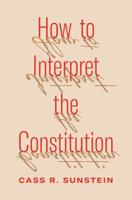Publisher's Synopsis
The Law of Usages and Customs is a legal book written by J.H. Balfour Browne. This book explores the concept of usages and customs and how they are applied in the legal system. Usages and customs refer to the practices and traditions that are commonly followed by a particular group or community. These customs can have legal implications, as they may be recognized by courts and used to interpret contracts and other legal agreements. The book begins by discussing the historical development of usages and customs in the English legal system. It then goes on to examine how usages and customs are established, how they are proved in court, and how they can be challenged. The book also explores the relationship between usages and customs and statutory law, and how courts reconcile conflicts between the two.Throughout the book, Browne provides numerous examples of how usages and customs have been applied in real-world legal cases. He also discusses the limitations of usages and customs, and how they can be misused or abused in certain situations.Overall, The Law of Usages and Customs provides a comprehensive overview of this important legal concept. It is a valuable resource for lawyers, judges, and anyone else interested in understanding how usages and customs are used in the legal system.1875. The author examines the customs out of which the law has developed. He explains in the introduction that all laws float in men's minds long before they send down a precipitate of imperative words. For example, it must have been understood by men that theft-the act of taking the property of another without his consent-was wrong before they made a law to punish the thief, with the view of preventing similar depredations. But long before men made a law they had bolts to their doors, and if they caught the robber they exercised their right by taking his booty from him and possibly even by inflicting upon him a vengeful punishment. This was not done by one man but by many, and we see in it the embryonic custom out of which the law has developed.This scarce antiquarian book is a facsimile reprint of the old original and may contain some imperfections such as library marks and notations. Because we believe this work is culturally important, we have made it available as part of our commitment for protecting, preserving, and promoting the world's literature in affordable, high quality, modern editions, that are true to their original work.











